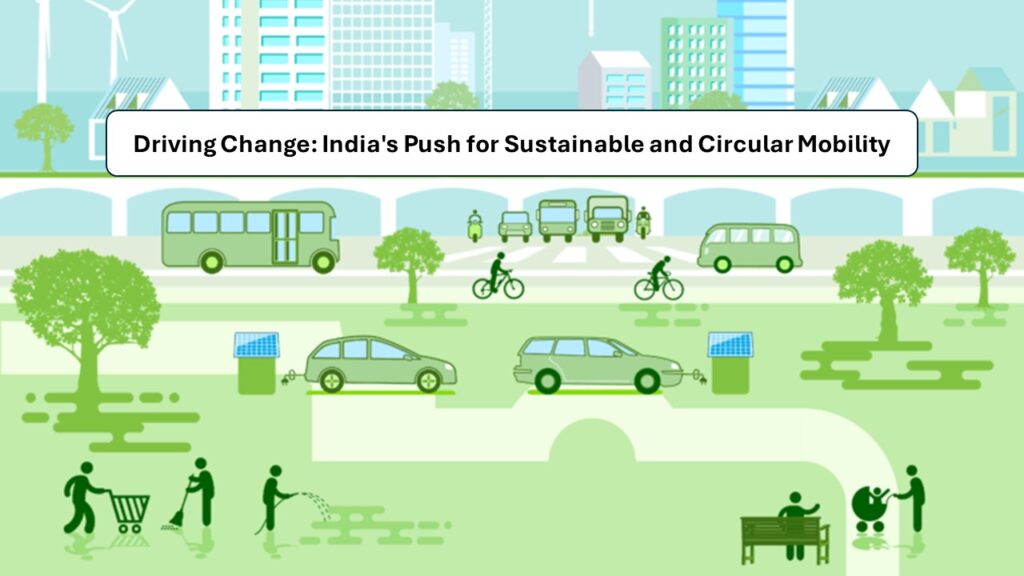The urgency to cut greenhouse gas emissions by 43% by 2030, as highlighted by the IPCC and UNEP, puts the spotlight on the transportation sector. Recognized as a major emitter, it also offers the potential for significant reductions. The UN Climate Change Report emphasizes the necessity of electrification and low-carbon fuels to keep global warming below 1.5 degrees Celsius.

India’s push towards EVs is crucial, yet faces challenges like high costs, range anxiety, and limited charging infrastructure. Government initiatives like the FAME Scheme, PLI scheme, and the new Electric Mobility Promotion Scheme (EMPS) launched on April 1, 2024, aim to boost EV adoption, particularly for two- and three-wheelers. The EMPS encourages global investment with no cap on maximum investment, signalling strong governmental support.
Key Areas of Focus:
1. Charging Infrastructure Development: India has 12,146 public EV charging stations, up from 6,586 in March 2023. Strategic placement is essential to balance usage and reduce range anxiety.
2. Consumer Awareness and Confidence: Building trust through manufacturer responsibility for essential parts, even after model discontinuation, is vital. McKinsey reports that 70% of India’s top-tier car buyers are considering EVs, reflecting a strong shift towards sustainability.
3. Increasing EV Share in Government Fleets: Mandating electric vehicles for government use sets a strong example and can drive demand. Delhi’s initiative to convert its fleet to electric is a noteworthy model.
4. Electrifying Public Transportation: Transitioning public transport to EVs can significantly reduce emissions and save approximately USD 14.1 billion annually by 2030 in crude oil imports. This shift will also create jobs and improve air quality.
5. Embracing the Circular Economy: Adopting a circular economy approach in EV manufacturing and usage can further enhance sustainability. This involves designing vehicles for longer life spans, promoting recycling of batteries and materials, and developing a robust system for refurbishing and reusing components. Such practices reduce waste and resource consumption, creating a more sustainable lifecycle for EVs.
By focusing on these areas and fostering collaboration between government, industry, and citizens, India can lead the global charge towards sustainable transportation. The time for bold action is now—embracing clean energy and circular economy principles is imperative for a healthier, greener future.
